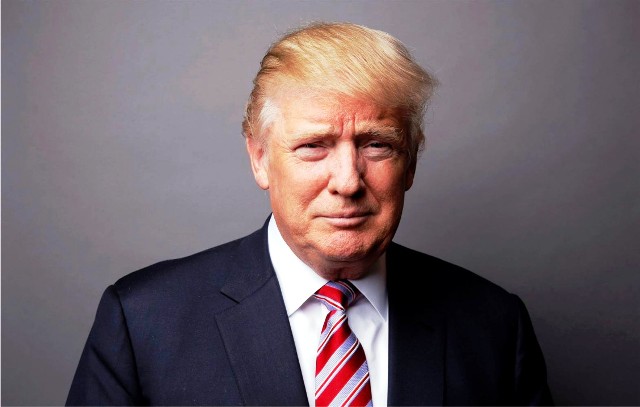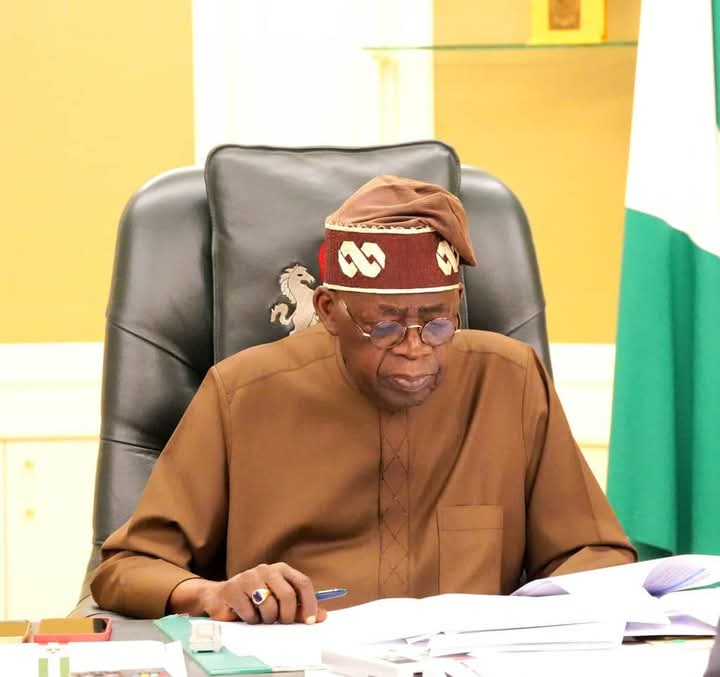Editorial
Coming Of Community Radio Stations
The world over, the media both electronics and print are charged with the onus of public education, information and entertainment. To this effect the media are known and ever addressed as the fouth estate of the realm yet the fulfillment of such dream is not realized particularly in the developing countries.
But one thing is clear, the dissemination of information especially government activities to the public has become crucial part of media duties which are sometimes difficult to perform mainly due to language barrier, poor communication system coupled with lack of modern equipment. Frankly speaking the grassroots are most neglected when we talk of non-availability of information on government activities. In the actual sense, information should be a-two-way traffic, coming from government to grassroots and visavis from grassroots to government.
Being aware of the need to bridge this gap, the federal government led by President Goodluck Ebele Jonathan empowered the National Broadcasting Commission (NBC) to approve licences for the establishment of Community Radio Stations without recourse to the Presidency. The President who spoke through his Vice, Alhaji Namadi Sambo while declaring open the 8th bi-annual conference of Africa Broadcasters at Abuja maintained that the Federal Executive Council has already considered the approved guidelines for the proposal by the NBC for the licence of Community Radio Stations in the country.
Consequently, it is believed that this singular directive has gone a long way to clear the bottlenecks associated with government policies in the past which were hardly fulfilled. The yawnings of the grassroots who had been denied both assess to information and the use of native languages in their respective domains will become the thing of the past as soon as the stations come on stage.
This, to a large extent would buttress democracy in the country because democracy in its entirety makes for freedom of information and one meaningful area to achieve this, aim and objective is by allowing the respective communities to have information through the use of their native languages for effective communication.
The Tide commends President Jonathan and welcomes the idea with keen interest and believes that the establishment of community radio stations in the grassroot will facilitate the programmes and policies of government at the various levels. No doubt it will also signal the awareness of people to the programmes of government at the grassroots, we believe, this is coming at the right time as the nation progresses for the 2011 general elections mainly because our votes must count this time.
We also hope that time was over due for the country to have more community radio stations because even in the neighbouring country such as Benin Republic there are about 37 community radio stations yet Nigeria that claims the giant of Africa has not got up to that number if at all she has any.
The Tide is further delighted that the establishment of community radio stations will bring genuine investors to the rural areas because communication will be enhanced at the grassroots. However we pervently pray that the political class will not hijack this lofty project to enable the rural dwellers express their views freely. To this end, we urge the NBC to properly scrutinize and ensure that all those who apply to own a station are screened. By so ding the process of owning station would not be abused.
We are also sure that this project will create employment opportunities and serve as poverty alleviation in the rural areas. Again, proper guidelines should be spelt out by the NBC, authorities so that the radio stations could maintain good standards.
More importantly, government should roll out measures to control the operation of the proposed stations. We are as well asking that any station that violates the guidelines should be deregistered. This is one of the ways that the goal behind the proposed community radio stations could be achieved.
We recall that at the Information Summit, 1st – 3rd September, 2010 organised by the Rivers State Ministry of Information in Hotel Presidential, Port Harcourt some papers presented had called for establishment of community radio stations among others as a necessary way of enhancing democracy in the country.
Nonetheless we believe that the message has arrived.
The Tide therefore advise that no community should use the station to breed discord against her neighbour as such would be counter-productive. Welcome community Radio Stations in Nigeria.
Editorial
HIV, Transiting From Donor Dependence

The initial announcement by United States President, Donald Trump, to cut funding for international
HIV/AIDS initiatives sent shockwaves through the global health community. In Nigeria, a country facing a significant HIV/AIDS burden, the potential consequences were dire. However, the subsequent waiver granted by the administration has provided a lifeline for the millions of Nigerians who rely on the President’s Emergency Plan for AIDS Relief (PEPFAR) for their treatment and support.
PEPFAR has been an important partner in Nigeria’s fight against HIV/AIDS. Since its inception in 2003, PEPFAR has committed more than $7.8 billion to the country, catering to approximately 90 per cent of HIV treatment requirements. With this funding, Nigeria has been able to enhance its HIV prevention, treatment and support services and has witnessed a reduction in HIV/AIDS deaths.
The waiver granted by the Trump administration guarantees that PEPFAR’s life-saving medicines and medical services will continue to reach the needy. Antiretrovirals (ARVs) are the most common type of medicine used to treat HIV and reduce the virus’ spread. Through the provision of ARVs, PEPFAR helps prevent the spread of HIV and enhances the quality of life of those with the condition.
Although Nigeria was recently exempted from the requirement, the signs are evident: the country has to graduate from dependence on donor funds for its HIV/AIDS control programmes. Over the years, partners including the U.S. government have been central to the provision of treatment to people living with the virus. However, it is time for Nigeria to own its national response to HIV/AIDS.
Nigeria’s HIV/AIDS burden remains critical, accounting for 10 per cent of the global total. In 2023 alone, there were 75,000 new infections and 45,000 HIV-related deaths. The battle against Mother-to-Child Transmission remains challenging, with only 35 per cent of the target 75 per cent being met. Nearly 1.7 million Nigerian children have been orphaned due to HIV. Vulnerable populations, especially women and children, continue to disproportionately suffer.
To transition away from donor dependence, a multifaceted approach is necessary. Firstly, the country must increase its domestic financing for HIV/AIDS programmes. This can be accomplished through innovative funding mechanisms, such as leveraging public-private partnerships and exploring local revenue sources. Secondly, the government needs to strengthen its healthcare system to ensure equitable access to testing, treatment, and care. This involves expanding access to antiretroviral drugs, investing in community-based models, and addressing the stigma associated with HIV.
Thirdly, Nigeria must prioritise prevention efforts. This entails promoting condom use, providing comprehensive sexual education, and increasing awareness about the risks and modes of transmission. By focusing on prevention, the country can decrease the incidence of HIV infections and ultimately lessen the burden on its healthcare system.
Finally, Nigeria should develop a sustainable human resource strategy for its HIV/AIDS response. This involves training and equipping healthcare workers, engaging community volunteers, and empowering people living with HIV to advocate for their rights. A well-trained workforce is essential for delivering high-quality services and ensuring the long-term success of the response.
The transition beyond donor dependence is a complex but necessary journey for the country. By increasing domestic financing, strengthening healthcare systems, prioritising prevention, and investing in its human resources, the country can create a sustainable and effective response to HIV/AIDS. Also, the government should consider alternative funding mechanisms, such as increased domestic funding, public-private partnerships, and philanthropic initiatives. The time to act is now, for the well-being of present and future generations.
Nigeria’s National Agency for the Control of AIDS (NACA) has made momentous strides in combating HIV/AIDS, including expanding access to testing, treatment, and education. However, challenges persist, hindering the effectiveness of these efforts.
One major obstacle is limited access to healthcare facilities, particularly in rural areas. This impedes timely diagnosis and treatment, reducing the likelihood of optimal outcomes for those living with HIV. Additionally, stigma surrounding the disease remains a formidable barrier, preventing individuals from seeking testing and care. Inadequate awareness campaigns further contribute to low testing rates and delayed diagnosis.
Addressing these challenges requires concerted action by the government and stakeholders. Allocation of adequate funding is crucial to expand healthcare infrastructure and ensure the availability of essential services. Moreover, targeted interventions to reduce stigma and promote awareness are vital for increasing testing and early detection.
Collaboration between civil society organisations and grassroots movements is also essential for advocating for protection of HIV funding. Advocacy campaigns can mobilise public support and pressure lawmakers to prioritise the fight against HIV/AIDS. By addressing these challenges and ensuring sustainable funding, Nigeria can depend less on donor countries, drastically reduce HIV transmission, and provide the necessary care to those affected by the disease.
Editorial
Israel-Gaza War: Sustaining The Ceasefire

Editorial
No To Hike In Telecom Tariffs

Nigerians are outraged by the Federal Government’s approval of a 50 per cent increase in telecommunications tariffs, with organised labour threatening to mobilise workers to boycott telecom services. The Nigeria Labour Congress (NLC) and the Trade Union Congress of Nigeria (TUC) have described the upcoming tariff as outrageous, lamenting that it will worsen the already harsh living conditions of workers and the masses.
Similarly, the Coalition of Northern Groups (CNG) rejected the hike, stating that it was ill-timed and did not take into consideration the struggles of Nigerians. The Human Rights Writers Association of Nigeria (HURIWA) also criticised the review, calling it an illegal, unconstitutional, and oppressive policy that undermines the fundamental rights and freedoms of Nigerians. It is a difficult moment for the industry.
Recall that the Nigerian Communications Commission (NCC) approved a 50 per cent increase in tariffs for telecom operators last Monday, instead of the 100 per cent raise that operators had requested. This decision quickly angered the consumers’ association, which criticised the government’s approval as not only punitive but also insensitive.
We wholeheartedly agree with the stance of labour and other groups on this very sensitive matter. We unequivocally condemn the 50 per cent increase in telecom tariffs. Though telecom operators cite higher operational costs and inflation as reasons for the hike, the timing and impact raise serious concerns in the current economic situation. It is a blatant attack on the well-being of the Nigerian worker and a betrayal of the people to corporate interests.
Telecommunication services are essential for daily communication, work, and access to information. However, the average Nigerian worker already spends approximately 10 per cent of their wages on telecom charges. For a worker earning the current minimum wage of N70,000, this means an increase from N7,000 to a staggering N10,500 per month or 15 per cent of their salary, a cost that is unsustainable.
This hike exemplifies the government’s apparent ease in prioritising corporate profits over citizens’ welfare. It is shocking that the government approved a 50 per cent tariff increase for telecom companies within a month, yet took nearly a year to approve the recent minimum wage for workers, despite the rising cost of living and inflation eroding purchasing power.
The questions are: When will the government stand up for the citizens it swore to protect? When will the National Assembly rise to its responsibility and hold the Executive accountable for policies that blatantly undermine the welfare of the majority? When will the common man finally heave a sigh of relief in Nigeria? We urge the government, the NCC, and the National Assembly to review the implementation of this ill-advised increase.
It is difficult to understand the state of mind of the managers of the nation’s economy. Sadly, these managers have alienated themselves from the reality of today. How can a government approve a 50 per cent hike in the tariff of telecom services when even the N70,000 minimum wage has been eroded by inflation, electricity tariff hikes, exorbitant fuel costs, transportation, and other social services?
Even if there is a need for an increase, why does it have to be 50 per cent? If, after dialogue, it is agreed that a raise is necessary, we should all consider a more reasonable increase rather than the 50 per cent hike. Fifty per cent is excessive and will only worsen the already harsh living conditions of workers, placing a heavier burden and more suffering on them and the general population.
The recognition of telecommunication services as essential components of modern society cannot be overstated. In an era characterised by rapid digital transformation, these services are fundamental not only for personal communication but also for facilitating broader socio-economic engagement. The proposed tariffs increase in the telecom sector raises critical concerns regarding equitable access to vital services that support communication, education, healthcare, and commerce.
In a democracy, the people should be the central focus of all government actions and policies. Every decision should aim to improve their quality of life. This plan must be carefully scrutinised with the welfare of citizens in mind. An increase in telecom tariffs will negatively impact many Nigerians, as the internet has become an essential tool for business, communication, and daily activities.
The Tide calls for the immediate suspension of the 50 per cent hike in tariffs. Instead, we recommend a more reasonable adjustment of a maximum of 10 per cent, which balances industry sustainability with the current economic realities in the country. We also demand that the NCC engages in genuine, inclusive consultations with consumer advocacy groups, civil society organisations, and other grassroots stakeholders before implementing any tariff adjustments.
-
News2 days ago
RSU Lecturer Unveils Research Innovation On Soap Production
-
Nation2 days ago
Commissioner Inaugurates Street Lights In 16 Communities
-

 Niger Delta4 hours ago
Niger Delta4 hours agoOborevwori Tasks Public Officers On Selflessness
-
Niger Delta2 days ago
ThisDay award, Affirmation Of Oborevwori’s Performance — Commissioner
-
Sports2 days ago
NCF targets success after W’Cup outing
-
Sports3 hours ago
Kano Pillars Signs two Europe returnees, four others
-
Politics2 days ago
Controversy As Ondo Dep Gov Allegedly Incurs N130m Hotel Bill In One Year
-
News5 hours ago
Shake-ups At Federal Varsities As Tinubu Sacks UniAbuja, UNN VCs, Appoints New Leaders

